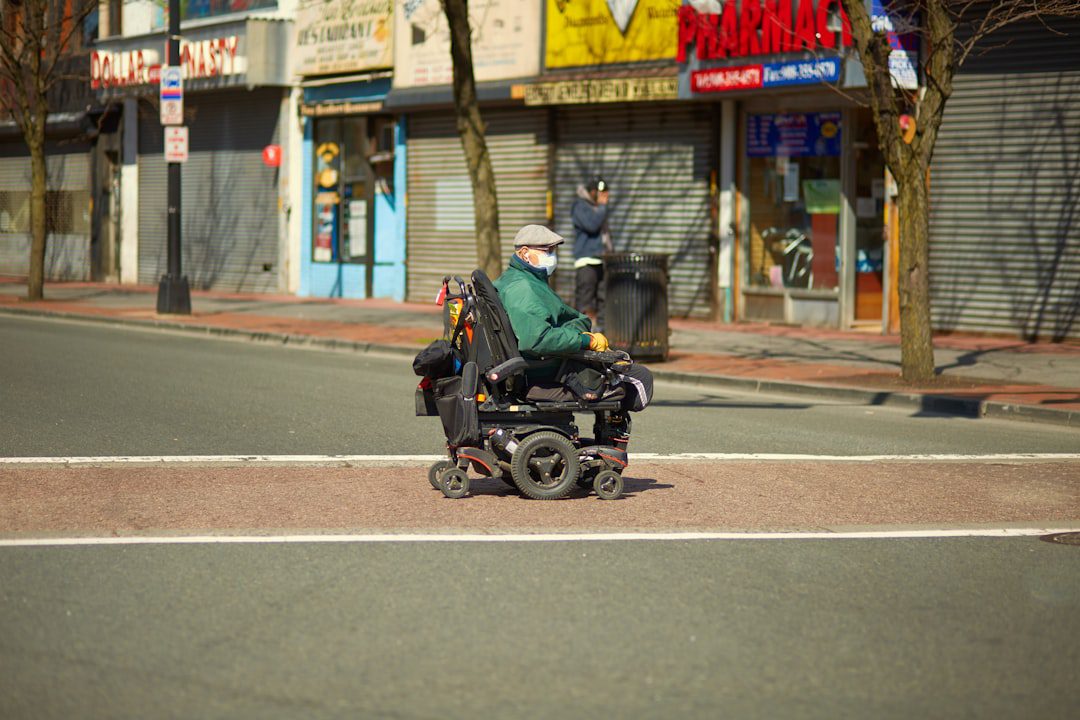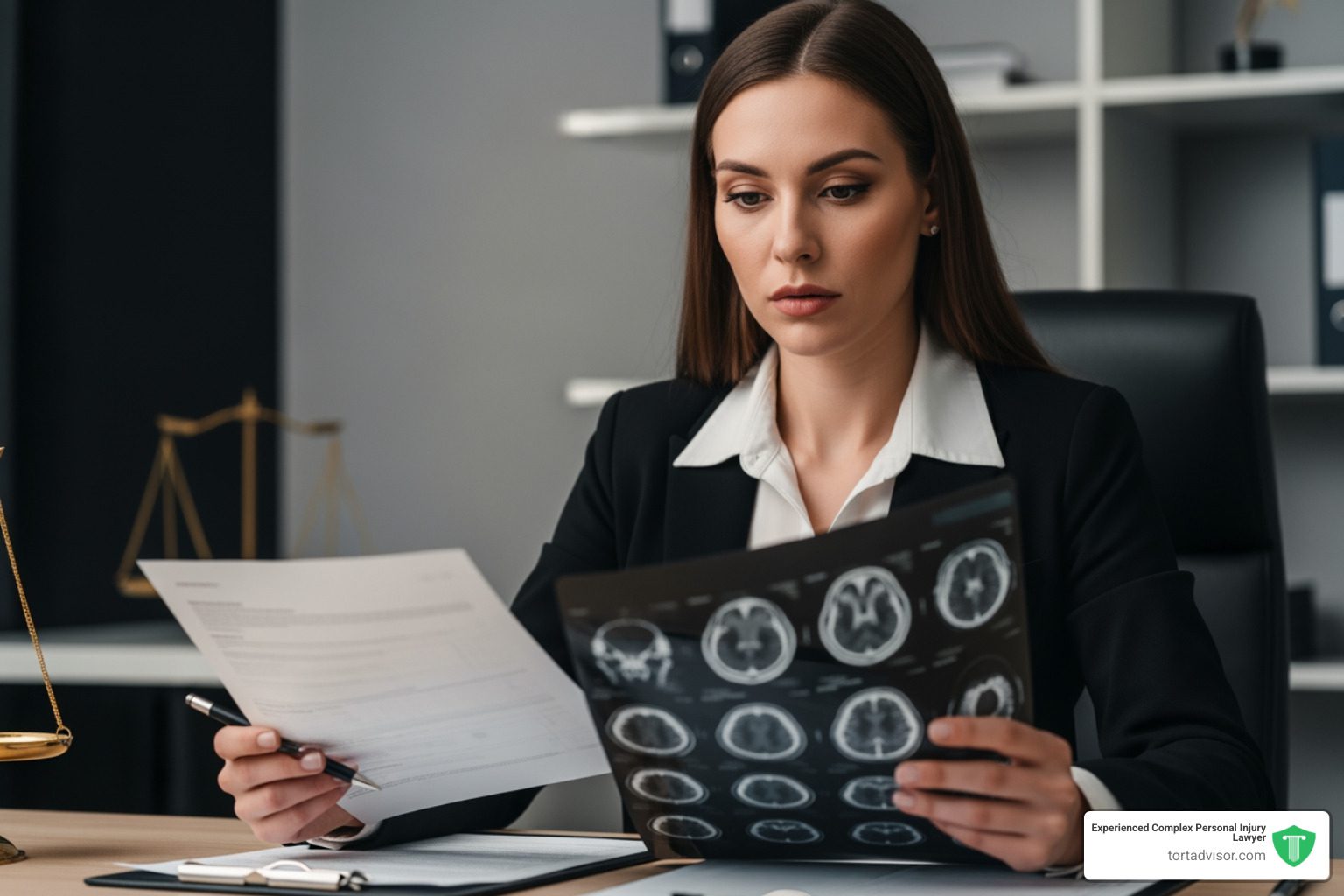


What is Mass Tort Litigation Support? Your Essential Guide
Complex legal battles like mass torts can be overwhelming due to their sheer scale. These cases can involve thousands of people harmed by a single issue, like defective medical devices or environmental disasters. This is where mass tort litigation support becomes crucial, offering specialized assistance for managing high-volume cases effectively.
Here’s what mass tort litigation support does:
- Manages High Volumes: Handles the massive number of claimants and documents in torts like those for AFFF firefighting foam or Talcum Powder.
- Boosts Efficiency: Streamlines claimant intake, medical record acquisition, and data management, cutting manual work significantly and achieving high completion rates.
- Reduces Administrative Burden: Offloads heavy administrative tasks, letting law firms focus on core legal strategy.
- Improves Attorney Focus: Frees attorneys to build strong cases and negotiate settlements instead of managing paperwork.
Expertise in cloud-based data management and automation directly applies to the complex data needs of mass tort litigation support, ensuring efficient and secure handling of vast information.
Let’s explore how specialized support transforms the mass tort litigation process.
The Challenge: Why Mass Tort Cases Demand a Specialized Support System
Mass torts present a unique challenge for law firms: managing not one client, but thousands, each with their own story and legal needs. The scale can be mind-boggling.
In cases like AFFF firefighting foam lawsuits or Talcum Powder litigation, high plaintiff volumes are common. For example, support provider Verus has managed over 8.7 million claims, and law firms like Faegre Drinker have handled tens of thousands of cases. These numbers represent real people seeking justice.
The massive data sets these cases generate include terabytes of medical records and documents. Finding specific information for complex findy becomes a monumental task.
The endless repetitive tasks—intake, record retrieval, document organization, and deadline tracking—create an administrative burden that can consume a firm’s resources. Without proper mass tort litigation support, legal teams are pulled away from practicing law.
While understanding How Much Does Mass Tort Lawsuits Receive is important, the real challenge is managing the process efficiently to maximize those outcomes for your clients.
The Crushing Weight of Administrative Tasks
The administrative side of mass torts is mission-critical and can be overwhelming.
Claimant communication is a full-time job, requiring meaningful, empathetic, and timely correspondence with thousands of individuals.
Medical record acquisition is a major challenge, involving countless providers with varying systems. A single missing record can be a critical piece of evidence.
Document organization demands precision. Every document must be categorized and searchable to avoid nightmare scenarios during trial preparation.
Court filings and compliance deadlines, especially in Multidistrict Litigation (MDL), are complex. Missing a deadline, like those discussed in a New Case Management Order On Witnesses, can jeopardize entire groups of claims.
These administrative tasks can consume up to 80% of a legal team’s time.
Freeing Your Firm to Focus on Legal Strategy
Mass tort litigation support is a game-changer, allowing your legal team to focus on high-value work that clients need.
Attorneys can focus on core legal work: researching precedents, crafting arguments, and dedicating time to trial preparation with expert witnesses.
With clean, organized data, settlement negotiation becomes more strategic and confident.
The firm’s strategic focus shifts from administration to maximizing client value, ensuring every claim, from a simple Personal Injury Lawsuit to a complex case, gets the attention it deserves.
The result is more time for high-value legal work, better case outcomes, and a more focused legal team.
The Core Services: A Complete Toolkit for Mass Tort Litigation Support
Mass tort litigation support is more than just a few services; it’s a complete system of end-to-end solutions managing a case from the first call to the final payout. This toolkit combines expertise, technology, and human effort to cover everything from client vetting to settlement administration. Services are custom for specific mass torts, including Hernia Mesh Lawsuits, a Hair Relaxer Lawsuit, or cases involving Paraquat, Roundup, Talcum Powder, AFFF, and Zantac.
The support process typically involves four key stages:
Stage 1: Claimant Intake and Case Vetting
This first step is critical for building a strong portfolio of cases. Specialized mass tort litigation support providers offer:
- Intake specialists, often available via 24/7 call centers, who are trained to compassionately and efficiently gather details from potential claimants.
- Strict screening criteria developed with the law firm to quickly identify viable claims and filter out non-qualifying ones.
- Management of plaintiff questionnaires to ensure complete and consistent data capture.
- Guidance for qualified clients through the retention process, often using secure online tools to make it fast and seamless.
Stage 2: Medical Record and Data Management
Once a client is retained, the focus shifts to data. Medical records are the backbone of most personal injury mass torts, providing proof of injury and causation.
- Medical record retrieval: Support teams use established systems and relationships with providers to expedite the collection of records from numerous sources.
- Chronologies and summaries: They transform large volumes of medical records into concise summaries, helping legal teams quickly grasp key medical facts.
- Missing record analysis: This service identifies and pursues gaps in documentation.
- Data extraction: Key details like diagnosis dates and treatments, which are vital for cases like the Depuy Synthes Knee Implant Lawsuit, are pulled from records.
These services convert raw data into actionable information, saving legal teams countless hours. You can see examples of this work at providers like Tort Solutions or read reviews for companies like Medsmith LLC.
Stage 3: Case Development and Expert Services
With organized records, the next stage is building the strongest possible case, which requires specific legal and medical knowledge.
- Plaintiff Fact Sheet (PFS) preparation: Support providers compile these standardized MDL forms, ensuring accuracy and completeness before submission.
- Document review: This extends beyond medical records to include findy documents and scientific studies, often using advanced technology to find key evidence.
- Bellwether selection: They assist firms in choosing the strongest, most representative cases for the initial trials that often guide global settlements.
- Expert witness sourcing: They connect law firms with qualified medical and scientific experts. For example, the Expert Institute’s Mass Tort Accelerator offers access to physicians who provide research and analysis to build cases on strong scientific footing.
These services are crucial for preparing cases for trial or settlement, ensuring firms are ready for key deadlines like those for Getting Cases Ready For Trial.
Stage 4: Settlement Administration and Lien Resolution
When a settlement is reached, the complex process of fund distribution begins, requiring significant financial and administrative expertise.
- Claims administration: This involves managing the entire process of verifying claims, calculating individual awards based on a settlement matrix, and communicating with clients.
- Qualified Settlement Funds (QSF): They manage these special accounts that hold settlement money while ensuring legal and tax compliance.
- Lien resolution specialists: These experts negotiate and satisfy liens from Medicare, Medicaid, and private insurers. This is a vital service offered by administrators like JND Legal Administration.
- Payout distribution: This is the secure and accurate disbursement of funds to thousands of claimants. The process can involve massive sums; for example, Verus has distributed over $8 billion in awards.
This final stage ensures clients receive the compensation they deserve, navigating complex issues like the appointment of Settlement Masters.
The Engine Room: How Technology and Data Security Power Modern Support
A robust technological infrastructure is the backbone of modern mass tort litigation support, ensuring efficiency, accuracy, and security. This includes sophisticated case management systems, AI-powered tools, and secure cloud platforms that enable providers to manage immense volumes of complex data while ensuring its integrity.
Streamlining Workflows with Case Management Software
Specialized case management software is at the heart of modern mass tort litigation support. These platforms serve as a centralized hub for all case information, providing instant access to claimant data, documents, and status updates from a single dashboard.
Key features include:
- Centralized Database: A single, accessible source of truth for all case data, eliminating scattered files.
- Automated Tasks: Automates repetitive tasks like intake forms and reminders, freeing up staff for strategic work.
- Real-time Reporting: Provides immediate insights into case progress and key metrics via dashboards.
- Client Portals: Secure portals for claimants to upload documents, track progress, and communicate, enhancing engagement.
Platforms like CASEpeer, Litify, and Filevine are designed to streamline these workflows. They are integral to efficient case management and healthcare lien compliance.
Ensuring Data Security and Confidentiality
Data security is non-negotiable when handling sensitive client information in mass torts. Reputable mass tort litigation support providers prioritize security to prevent catastrophic breaches.
Key security measures include:
- SOC Compliance: Regular SOC (Service Organization Control) audits verify rigorous controls for data security, confidentiality, and privacy.
- Encryption: All data is encrypted in transit and at rest to prevent unauthorized access.
- Strict Confidentiality Agreements: All team members are bound by stringent confidentiality agreements.
- Secure Data Handling Protocols: Strict internal protocols govern data access, processing, and storage.
- Vetted Platforms: Use of secure, industry-standard software and cloud infrastructure.
This comprehensive approach ensures sensitive information remains protected and compliant, even during complex matters like a privileged documents dispute.
Choosing Your Partner: How to Select the Right Support Provider
Choosing the right mass tort litigation support partner is a critical decision. It’s about building a partnership with a team that understands the unique challenges of mass torts and can scale with your firm. Carefully vet potential providers for their experience and cultural fit. Even large firms team up with specialists like Tritura for e-findy and data management, highlighting the importance of these partnerships.
Evaluating Engagement Models
When seeking mass tort litigation support, you’ll find several engagement models. The best choice depends on your firm’s needs, budget, and desired level of control. Common engagement models include:
| Factor | Outsourced Staff (e.g., Legal Soft) | Project-Based Services (e.g., Medical Record Review) | Full-Service Partnership (e.g., Verus, Epiq) |
|---|---|---|---|
| Cost | Often most cost-effective for ongoing admin; fixed monthly fee. | Per-project or per-item fee; predictable for specific tasks. | Higher overall cost, but comprehensive and integrated. |
| Scalability | Highly flexible; easily scale up or down based on caseload. | Scalable for specific tasks; less flexible for broad needs. | Very high; designed to handle large, fluctuating volumes. |
| Integration | Requires some integration with firm’s CRM/workflow. | Minimal integration for specific deliverables. | Deep integration with firm’s systems and processes. |
| Scope of Work | Administrative, communication, data entry, CRM management. | Specific, defined tasks (e.g., medical record summaries, PFS). | End-to-end management; covers entire litigation lifecycle. |
| Control | High; direct supervision of outsourced staff. | Moderate; define scope, but provider manages execution. | Lower daily control; higher strategic oversight. |
| Expertise | General legal admin, often pre-trained in mass tort software. | Specialized expertise in specific tasks (e.g., medical, data). | Broad, multi-disciplinary expertise across all stages. |
Key Factors for Selecting a Mass Tort Litigation Support Partner
Beyond the engagement model, consider these key factors when selecting a partner:
- Specialized Expertise: Does the provider understand the nuances of mass torts, including specific case types? Look for a deep bench of medical, legal, and process management experts.
- Technological Capabilities: Do they use modern case management software, AI for document review, and robust data analytics? Their tech stack must handle massive data volumes efficiently.
- Proven Track Record: Ask for references, case studies, and key metrics (e.g., claims managed, awards distributed). Client testimonials provide valuable insight into their performance.
- Data Security Protocols: This is non-negotiable. Ensure they are SOC compliant, use strong encryption, and have strict confidentiality agreements to protect sensitive client data.
- Scalability: Can the partner quickly scale resources up or down to match fluctuating caseloads?
- Communication: Look for clear reporting, dedicated account managers, and responsive service, which are foundational to a good partnership.
Understanding Cost Structures and ROI in Mass Tort Litigation Support
While cost is a factor, it’s crucial to evaluate it in terms of Return on Investment (ROI). This support is an investment in your firm’s efficiency and capacity. Common pricing models include hourly rates, per-case fees, and subscription models.
The ROI is significant. Outsourced support can save firms substantially compared to hiring in-house staff (e.g., some providers estimate savings of over $50,000 annually per hire), before factoring in benefits and overhead. The true ROI extends beyond direct cost savings:
- Increased Capacity: Handle more cases without increasing fixed overhead.
- Reduced Administrative Costs: Save on hiring, training, and managing administrative staff.
- Faster Case Progression: Streamlined processes accelerate the case lifecycle, improving cash flow.
- Maximized Client Value: Ensures claims are well-documented for the best possible outcomes, boosting firm revenue and reputation.
- Focus on High-Value Work: Attorneys can focus on legal strategy, where they provide the most value.
Investing in efficiency and expertise opens up greater potential in your mass tort practice and helps maximize what your clients How Much Does Mass Tort Lawsuits Receive.
Frequently Asked Questions about Mass Tort Support Services
Here are answers to common questions law firms have about mass tort litigation support.
Are my client’s data and information safe with a support provider?
Yes. Data security is the top priority for any reputable mass tort litigation support provider. Protecting sensitive client information is essential to their business. Providers use multiple layers of protection, including strict confidentiality agreements for all staff and secure platforms for data handling and storage.
Key security measures include strong encryption for all data, regular SOC (Service Organization Control) compliance audits to verify controls, and a thorough vetting process for staff and technology. These partners treat your client’s data with the utmost care.
How much training is required for outsourced support staff?
Very little. A major benefit of specialized support is that the staff comes prepared and ready to contribute immediately. Support teams consist of pre-trained assistants who understand mass tort procedures and are often familiar with popular case management software like Litify, Filevine, and CASEpeer. This minimizes the learning curve.
Your firm only needs to provide firm-specific process guidance, such as your preferred methods for logging notes or communications. This saves significant time and allows them to be productive quickly.
How do support services help with ongoing claimant communication?
Mass tort litigation support services are designed to manage the immense task of claimant communication, ensuring clients feel heard and informed. They provide dedicated teams to handle regular updates via phone, email, or online portals, keeping clients informed about case progress and key milestones.
All interactions are recorded in centralized communication logs for consistency. Many providers also offer secure client portals where claimants can track their case, upload documents, and send messages, increasing transparency and reducing inbound calls to your firm. This frees up your legal team to focus on core legal work, resulting in happier clients and a less burdened staff.
Conclusion
In the demanding world of mass torts, the right support is vital. Mass tort litigation support providers are the behind-the-scenes heroes who tackle the immense administrative and data challenges of high-volume cases. They offer critical efficiency, scalability, and specialized expertise that can be a game-changer for law firms.
By leveraging these services, your firm gains a strategic advantage. Offloading repetitive chores frees your attorneys to focus on what they do best: crafting winning legal strategies and fighting for justice for every client. This approach is about delivering more value to clients who have suffered harm.
As the mass tort landscape evolves with complex cases like the Johnson & Johnson settlement and we look toward 2025 and beyond, the need for specialized support will only grow.
Here at Tort Advisor, we connect clients with top-tier specialty attorneys. We work exclusively with highly skilled lawyers who have a proven track record to ensure clients receive the best possible representation and outcome.
By embracing the right support, your firm can manage complex cases with greater ease and achieve better results for your clients. Explore our resources on active lawsuits to learn more!
Free Confidential Case Evaluation
Complete the short form below to get an immediate FREE case review with an expert in your specific claim. Don't wait, your case could be time sensitive to file a claim.
Related Posts
Discover New Jersey disability benefits: TDI, FLI, SSDI, SSI rates, eligibility, applications & appeals for 2025-2026.
Hire a Depo-Provera lawsuit attorney now. Fight Pfizer for meningioma risks from injections. Free consult, MDL updates & settlements up to $1.5M.
Find top Miami florida car accident lawyers after your 305 crash. Get max compensation, navigate no-fault laws & choose the best experts now!
Diagnosed with cancer after Roundup? Learn about the monsanto roundup lawsuits, eligibility criteria, and how to pursue your claim.
Discover how do you qualify for a hair relaxer lawsuit: criteria, diagnoses, evidence & brands in uterine cancer MDL. Claim review now!
Find the best uber sexual assault lawsuit lawyer: expert guides, MDL experience, proven results & nationwide firms for justice.











